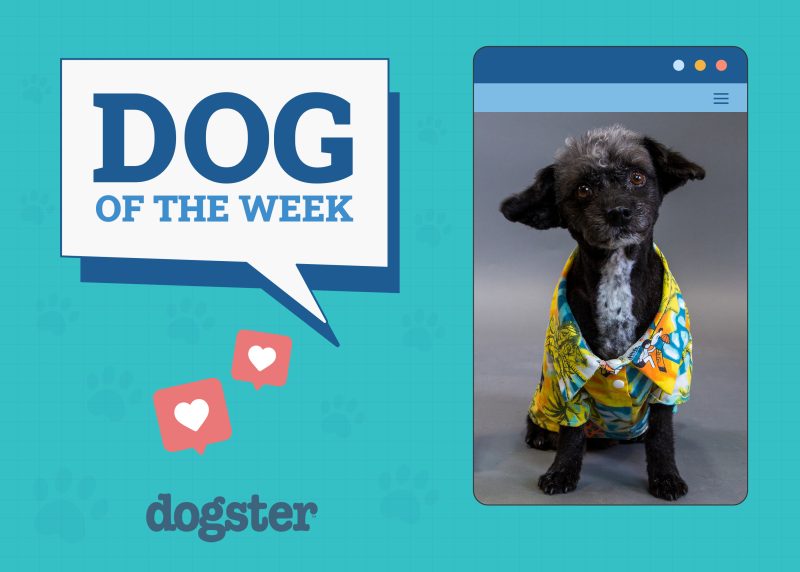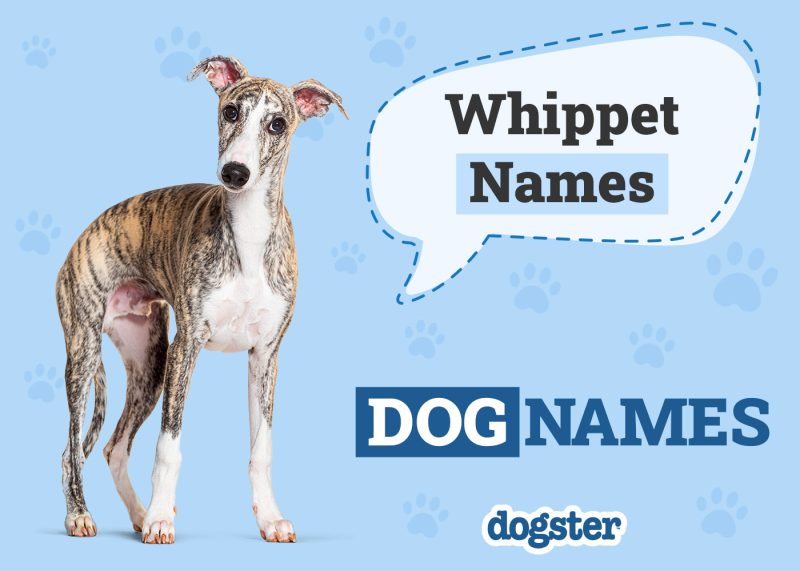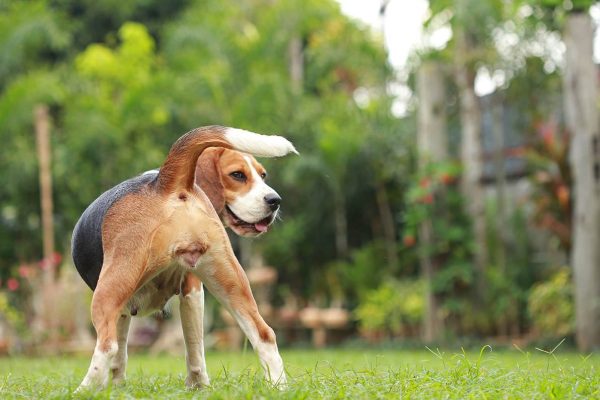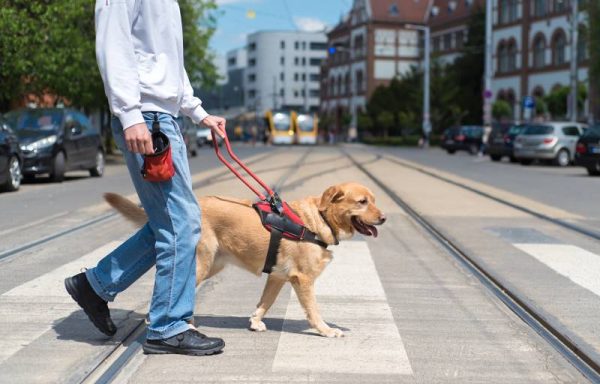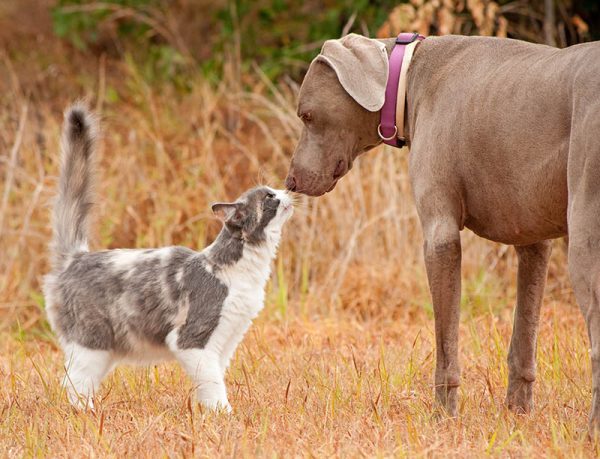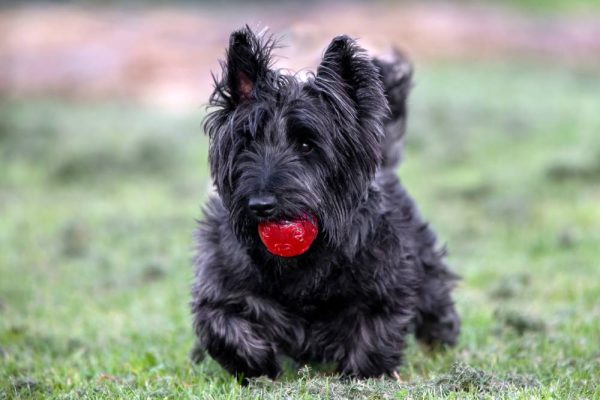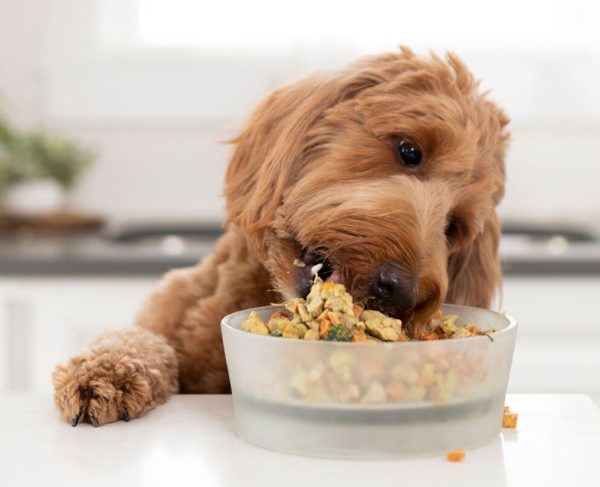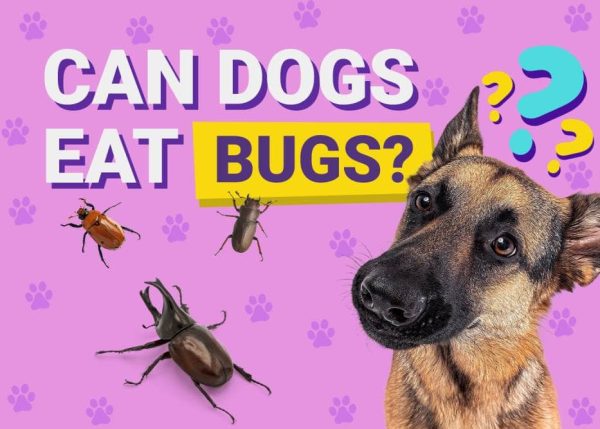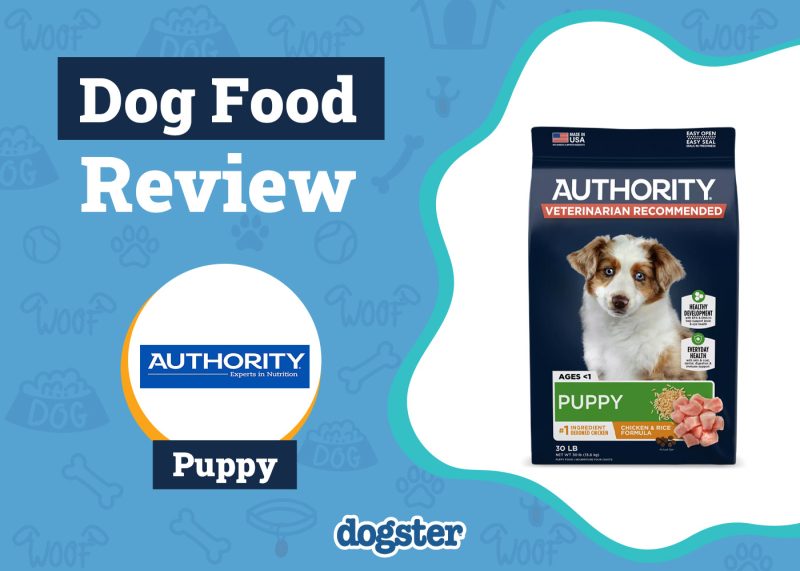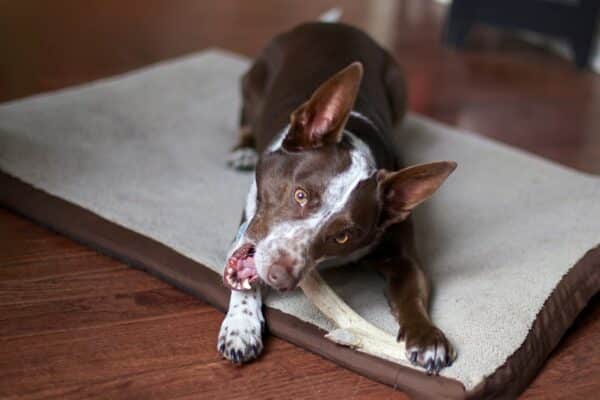In this article
View 8 More +If you’ve ever seen a Brussels Griffon walking around town, you may have lots of questions and comments. This Ewok-looking little dog is out of this world. They’re a very small breed with a brachycephalic face and sprouts of hair that last for days.
There are a few different kinds of Brussels Griffons in terms of appearance and how people understand them. In this article, we’re going to divulge all of the information that we know about this interesting breed.
Once you’re through reading, you can decide if it is a type of dog that would ever interest you in the future. Let’s get started.
Breed Overview
Height:
7–8 inches
Weight:
8–10 pounds
Lifespan:
12–15 years
Colors:
Red, black and tan, red, black
Suitable for:
Most canine-loving homes
Temperament:
Active, loyal, affectionate
If you want a dog with some character, you will certainly get that from the Brussels Griffon. Not only do they have an incredibly interesting look, but their compact size lets them fit in most lifestyles and living conditions, and they also have quite the personality. No two are quite alike, but one thing is for sure, this dog is feisty, spoiled, and ready to be the boss.
They are hilarious and adorable, but they could be a little bit problematic for specific situations. We aim to educate you on compatibility, since it is a huge factor, and the success of keeping a dog their entire life. Let’s see if the Brussels Griffon is right for you.
Brussels Griffon Characteristics

Brussels Griffon Puppies
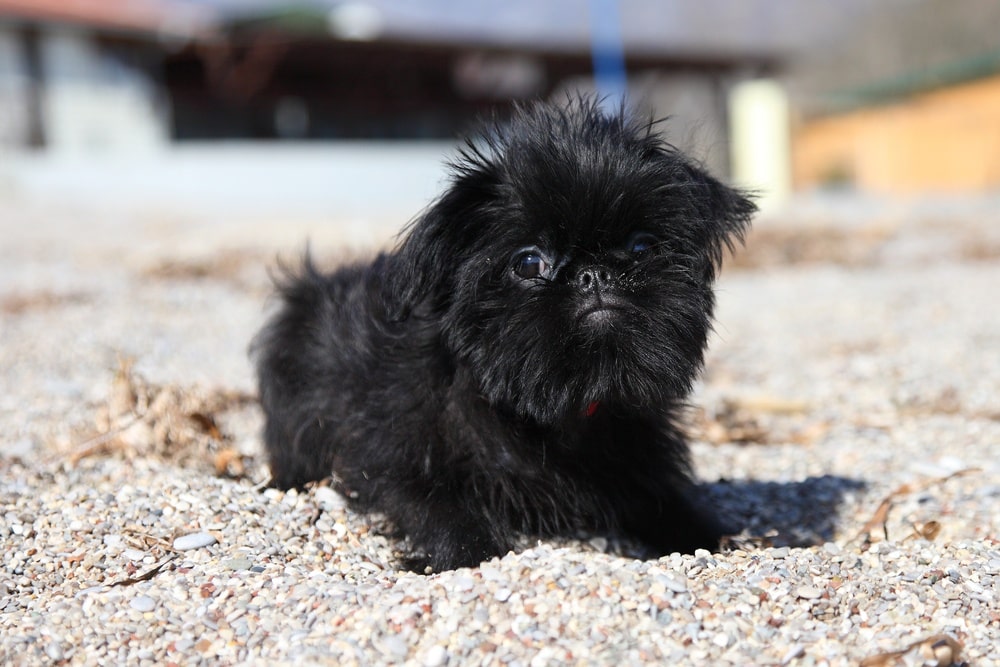
It might be pretty intimidating at first, bringing home this tiny, wiry haired creature. They will instantly woo you with their big, bulging eyes, squished-in face, and sprouting mustache.
Heck, they have better facial hair than most middle-aged men. Quickly, this dog will grow into a still rather small dog with a bountiful personality. As they are growing up, they will have a lot of energy, but it shouldn’t be too hard to get it out. As long as they have a big enough space to run around, they burn a lot of it out themselves. We wouldn’t consider them a high-energy breed, but they’re highly manageable for many people.
If you are shopping for a Brussels Griffon explicitly, you should always purchase a puppy from a licensed, reputable breeder with a long history of successful litters. You should make sure that all puppies have had their first round of vaccinations and are properly accredited by a kennel club.
Brussels Griffon Origin & History
The Brussels Griffon originated in Brussels, Belgium. Although these little dogs started as ratting dogs that were bred to catch mice, they started to rise in popularity in the 1800s as a companion to wealthy people. In 1870, their popularity really took off as the Queen of Belgium became a fan of the breed and these dogs were further refined.
Brussels Griffons came to England and America, where they began to compete in shows. The breed was finally recognized by the American Kennel Club in 1910 but was almost wiped out in both World Wars. Thanks to breed enthusiasts in the US and Britain, the breed was able to survive and become what they are today.
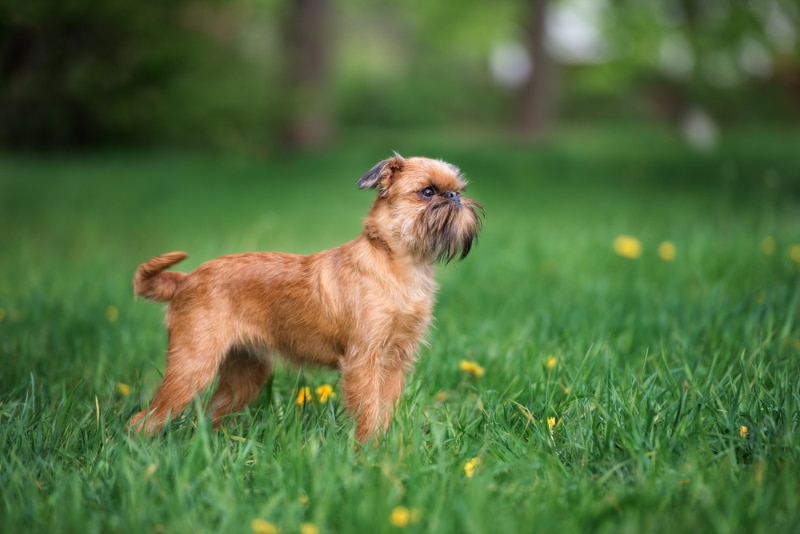
Temperament & Intelligence of the Brussels Griffon 🧠
The Brussels Griffon is both intelligent and eager to please. This combination makes them incredibly trainable for their special person. However, they are also very headstrong, making them challenging for novice owners and acquaintances.
If you live in the house with a Brussels Griffon, but you’re not first on their list of favorite people, they might be completely indifferent toward your commands. For example, someone’s significant other might buy them a Brussels Griffon for Christmas, but the dog takes to another person in the home instead.
Keep in mind that the Brussels Griffon can be very needy. This is the kind of dog that wants to be your shadow at every return, so it’s not necessarily the right dog if you work a lot or don’t have a lot of tolerance for the invasion of personal space.
Are These Dogs Good for Families? 🏡
The Brussels Griffon can make a wonderful addition to many different types of families. Primarily, they choose one person to take after most. If you want that person to be you, it is important to socialize with them very early on so that they learn to bond with you.
Despite your best efforts, they might favor someone else in the household instead. But that doesn’t mean they aren’t pleasant to be around. They are very social, excitable, and full of personality.
They will love to share this with just about anyone in the family, although they can be very selective, and even judgmental of some household members.
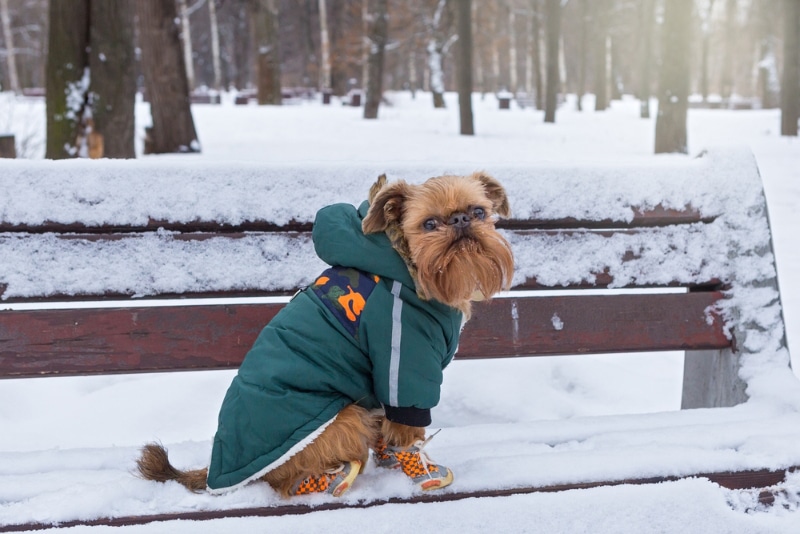
Does This Breed Get Along With Other Pets? 🐶 😽
The Brussels Griffon can get along very well with other pets and are not typically aggressive dogs. Because of their small size and big personality, however, they can be problematic sometimes. For example, they think they rule the roost and they are not afraid of anything.
So, if a bigger dog approaches them, and they feel any sort of way about that, they’ll likely try to stand around. Another dog might misunderstand the intention of the Brussels Griffon and get aggressive as a consequence.
So, it is important to ensure that personalities and aggressive levels mesh when pairing. Your Brussels will likely get along very well with your cats, even if they sometimes torment them. Your Brussels Griffon is likely to be more tormented by the cat, then to be the tormentor in this scenario, but we digress.

Things to Know When Owning a Brussels Griffon
Food & Diet Requirements 🦴
Your Brussels Griffon will need high-quality dog food supporting their current life stage. They typically don’t have any dietary restrictions, so you can feed them your choice of dry kibble, wet, canned food, fresh food, or raw dog food.
Ultimately, it will be up to you and your vet to decide. Budget also plays a role. While fresh foods are subscription-based, hassle-free, and more canine-specific, they can be very pricey and simply not in the cards for everyone.
Thankfully, with a small Brussels Griffon, the cost isn’t as much for overall care.
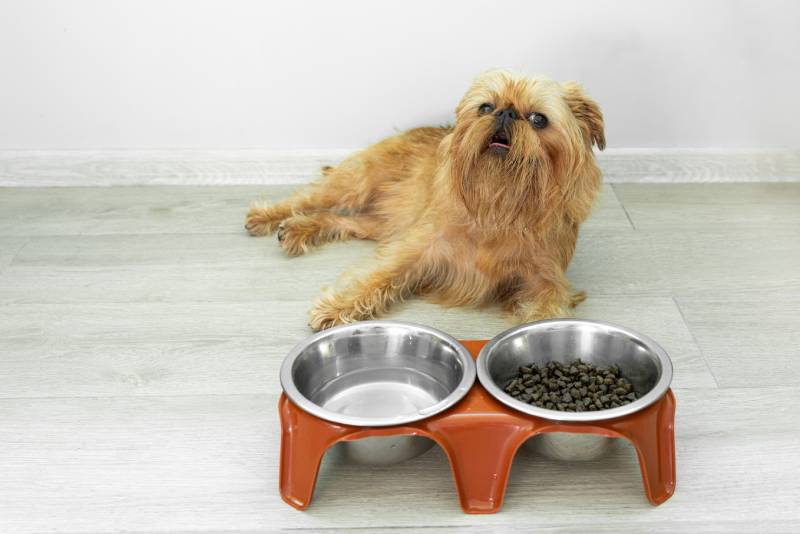
Exercise 🐕
If you’re a person who has trouble getting around or any type of physical limitation, a Brussels Griffon might be a very good option for you. Their needs are modest at best.
Unlike other dogs that require vigorous exercise to keep them stress-free and happy, the Brussels Griffon only needs roughly 30 minutes to an hour of exercise per day. Two 15-minute walks should suffice.
Training 🦮
Your Brussels Griffon will be easy to train, permitting you are the one they listen to. They might not respect authority if they don’t feel as connected to another person. So you can have your Brussels Griffon trained to do tons of commands and listen 100% of the time.
That doesn’t mean somebody else living in your home will have the same results. Don’t think that if it seems like someone is having poor results training that it is because a Brussels Griffon is not that intelligent.
They are insanely intelligent, permitting they feel inclined enough to do what you request.
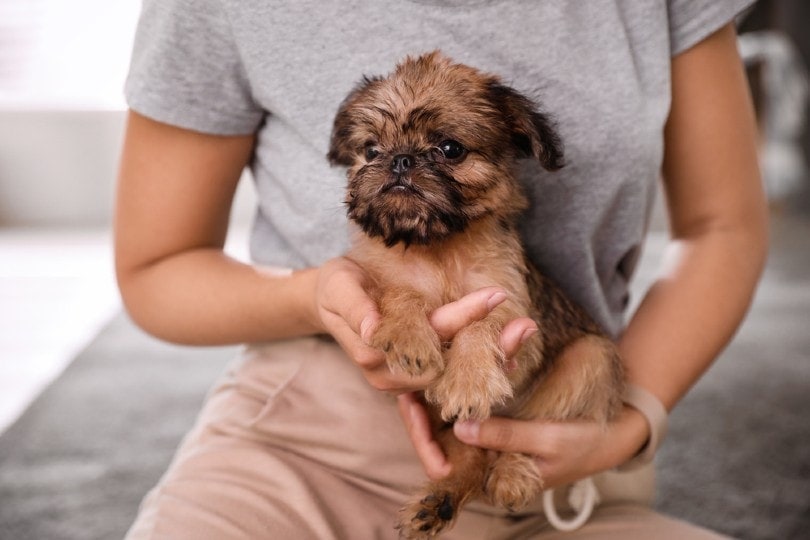
Grooming ✂️
You might have your hands full when grooming the Brussels Griffon. You’ll be pleased to know that these dogs are hypoallergenic, so you don’t have to worry about people in your home suffering from mild to moderate allergies.
However, as any hypoallergenic dog goes, no dog is ever truly hypoallergenic. They simply produce less irritating allergens than some other breeds. The Brussels Griffon does not shed, which is a major upside for people who can’t stand cleaning up dog hair.
They have longer hair requiring regular grooming, daily brushing, and professional haircuts. Like all other dogs, your Brussels Griffon should have a full body bath once every 4 to 6 weeks.
Health and Conditions ❤️
Healthcare for your pets is just as important as it is for the other members of your family! In their first year of life, your Brussels will get to know their vet really well! They will need routine vaccinations, deworming, spay and neuter surgery, and optional microchipping.
Brussels Griffons can be susceptible to a few health complications. The best way to navigate around that is to buy from a reputable breeder to avoid any potential genetic health concerns.
- Eye injury
- Luxating patella
- Respiratory issues

Male vs. Female
Male and female Brussels Griffons have a few differences to mention. First, the male is usually slightly bigger than the females. However, if they are a hybrid, all rules are off. They could be any size despite their sex.
When it comes to personality, each dog will be different regardless of being a boy or girl. However, females can get reproductive cancers, and males are very likely to mark their territory if they aren’t spayed and neutered in time—so make an appointment to get your pets fixed always!
3 Little-Known Facts About the Brussels Griffon
1. The Brussels Griffon is a wonderful mouser.
The Brussels Griffon was initially bred to hunt mice and other rodents. They were masters at the task and still want to chase little critters today.
2. The Brussels Griffon is brachycephalic.
If you pay attention, you’ll see that what makes the breed stand out among the rest is their large, bulging eyes and smooshed snout. These dogs, like Pugs, Boxers, and Shih Tzus, are brachycephalic, meaning they have globus eyes and shortened skulls.
3. The Brussels Griffon has more than one coat type.
The Brussels Griffon comes in two coat types: rough and smooth. The rough coat is a little coarser and wirier, but sheds less. The smooth coat is more glossy, straight, and short.

Conclusion
Now, you know about the spunky, independent, yet oh-so-very dependent Brussels Griffon. Not only can you have so much fun with their overall look, but you can also spend years being entertained by their hilarious antics.
If you are looking for a Brussels Griffon, be sure to adopt or buy a pup from a licensed breeder!
Featured Image Credit: Vera Shcher, Shutterstock


